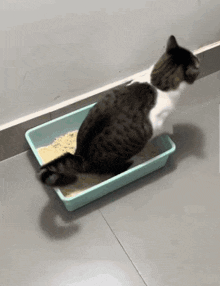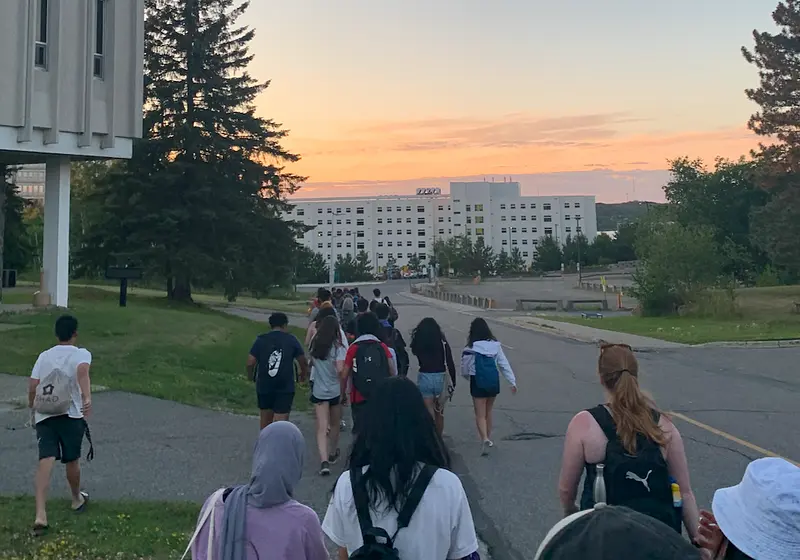Many teens make their favorite summer memories at sleepaway camps. However, few teens have founded their own summer camp, let alone one which works with famous scientists such as Forbes 30 Under 30 professor Ritu Raman and National Institutes of Health researcher Leslie Baier.
Teen multihyphenate Nora Sun founded Talaria Summer Institute, a science research summer program that has been connecting teens all over the world, when she was just fourteen years old. “I started Talaria two months in quarantine when I was a freshman in high school,” Nora told The Teen Magazine. “I was really getting into science research and experiments at the time.” Talaria Summer Institute, named “Camp Talaria” in its first year, was started as Nora’s way of sharing her love of science research with her friends. However, Talaria quickly grew beyond that—now in its fourth year, Talaria accepts just a-tenth of its applicants, who get to spend the summer of their lives doing science with mentoring scientists, many of whom work at elite institutions, while hanging out together at the beach or listening to world-class lectures from Harvard graduates.
In this interview with The Teen Magazine, Nora reveals how to get into Talaria, her favorite camp traditions, exciting plans and collaborations for the future of Talaria.
Let us slide into your dms 🥰
Get notified of top trending articles like this one every week! (we won't spam you)What is a “Talaria”?
If you are wondering how to pronounce that word, which is a reference to the winged sandals of Greek messenger god Hermes, there is no correct answer according to Nora.
“It’s actually a long-running joke because everyone pronounces it differently,” Nora said, who has made fun video compilations of participants throughout the year pronouncing Talaria. “We chose the name because Talaria started as a program under the nonprofit I co-founded, ATHENA, and we were going with a Greek theme. The idea was that Talaria could give a little boost to Talaria participants in their science journeys.”
When Nora first became interested in science and science research, she was excited to share her hobby with her friends. She thought a few of her classmates, who enjoyed the same science clubs as her, would also love doing research, and she wanted to start research projects with them. However, she soon realized that her friends, especially girls, were hesitant and intimidated by the prospect of doing science research.
“I wanted to show other people that research was exciting and fun,” Nora said. “Though it can be very difficult, I believe that everyone can do some level of scientific inquiry with proper mentorship, no matter their age or gender. I knew a lot of people’s summer plans were getting canceled because of COVID, and I thought a summer camp would be the perfect way to get more of my friends into science research.”
A few weeks after she opened applications for the camp, she was getting messages from students in South America, India and the Philippines who wanted to join, and that’s when she realized that this would be a much larger project than she had expected.
“During a global pandemic, educational opportunities are naturally limited,” Nora said. “For many teens in developing countries, they could not afford other summer opportunities, which can cost thousands or even tens of thousands of dollars. Talaria was their only opportunity to get involved in real, hands-on science.”
During the first year, about a hundred teen girls were matched with a hundred science researchers from around the world. Though the program was completely virtual, that did not stop Nora from building a tight-knit community. During the month-long program, girls not only completed their own science research projects but also built life-long bonds in an uncertain time through late-night research grinds, peer-editing sessions, movie nights, and a huge constantly-active group chat.
Now, year after year, one hundred to two hundred lucky girls are chosen for the camp. Talaria now has in-person chapters in several large cities in addition to the online cohort, which allows the girls to go on field trips and hang outs together outside of their science work.
Take the Quiz: What Type of Notes Should I Take?
Discover the best note-taking method for your learning style!
On Equity, Inclusivity, and that 13% Acceptance Rate
Equity and inclusivity are crucial to Talaria’s mission.
“[2020] was the summer when a lot of social movements such as Black Lives Matter became very visible to Gen Z,” Nora said. “I think many teens, including myself, learned a lot about how race, gender, socioeconomic status, and other parts of our identity sort of gives us different starting points in the race of life.”
When it came time to select participants for her summer camp, Nora kept these lessons in mind: She wanted to empower girls because she had seen first-hand how self-doubt about their ability to pursue science was significantly more prevalent among girls at this age than boys. She also wanted to focus on giving this opportunity to teens who lived in under-resourced communities, were socioeconomically disadvantaged, or under-represented in science.
In order to be among the 13% of competitive applicants who are selected annually for Talaria, teens must not only demonstrate a strong passion for science, but also a lack of other opportunities.
“It really blows my mind that anyone actually wants to apply, let alone more people than we have capacity for,” Nora said. “However, after we expanded so rapidly that first year, I became much more intentional about how I ran the camp because I realized the impact I could have. I did a lot of research on intersectionality, intellectual empowerment, cognitive diversity, and a lot of other big ideas about equity. I started backing up how I ran the science camp with science because I really want Talaria to not just be an exciting experience, but also have a concrete impact on each participant’s life and career.”
There is no doubt that Nora has succeeded in making a serious impact. Yet, in many ways, Talaria still has the spirit of the fun summer camp Nora made for her friends over quarantine, with all sorts of adorable and strange traditions…
Cats, Kale, and Killer Clowns
“One of my favorite parts of running Talaria is probably meeting all these cool girls from around the world and starting all these obscure inside jokes with them,” Nora said.
Among her favorite camp traditions include the cat pictures group chat, where participants send pictures of their pets. Nora, who is extremely fond of cats but has unfortunately yet to own one, says that the cats they receive regular photos of become characters in the camp’s conversations. “They’re definitely the most iconic part of Talaria’s ecosystem,” Nora said. Other nerdy inside jokes in this super-selective summer camp range from kale’s chemical composition to the science behind true crime thrillers about killer clowns.
However, friendship in Talaria goes beyond simple jokes. During the program, Nora texts every participant individually, not only to make sure that the science is going smoothly for them, but also to get to know them as a person. “I feel really fortunate to have the opportunity to develop personal relationships with each of the participants,” Nora said. “Besides our silly traditions, I often develop friendships with the participants which last far beyond the program. They’ve changed my life in such subtle yet profound ways.” Nora fondly recalls sending pictures of the night sky to a participant who lived in a Middle Eastern country split by war. Because of smoke from the war and pollution, the participant, an aspiring astrophysicist, could not see the stars, so Nora tried to wake up early to take photographs of the night sky and because of it, became a morning person.
What’s Next?
This summer, Talaria will be launching new residential chapters. In contrast to in-person and virtual chapters of the camp where participants stay at their own homes, residential students will live in dorms at universities and work in science labs at the university. As COVID restrictions ease, Nora hopes that these chapters will provide participants more time to work with their mentors as well as a better opportunity to bond with each other.
And Nora, who is in her senior year of high school, hopes to study chemistry with a focus on biochemistry at college next fall. She looks forward to facilitating collaborations between scientists on her college campus and Talaria.
Keeping Up With Talaria
If Talaria sounds like a fun way to spend your summer, you can learn more on Talaria’s website or keep up with when applications open by following ATHENA’s Instagram, abwis_org.
















